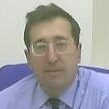
Francisco Igualada 
International mining consultant
World Bank
Francisco is an engineer geologist with 30 years of technical, and executive experience, advising Uzbek Cooper Cluster and the Nigerian MInDIver on mining exploration and geoscience. He works for the WORLD BANKs as consultant in Africa & being part of the team engaging with the Kazakhstan gov. on carbon just transition/scenarios and critical minerals. Francisco was WB senior staff providing advice to organizations, leading teams in DRC, Nigeria, Laos, Guinee lending, being technical expert. Francisco has an MSc in Exploration Geology/Geophysics (Spain), worked for D&M environmental consultants, Spain’s Geological Survey (IGME) and South African Geoscience (SACG). He obtained Dipl. MSc in Eng. and Geo-Information (The Netherlands), working in exploration for two firms. He completed an MPhil/PhD (UK) joining the EUROPEAN UNION, SC as geology analyst/manager. Francisco obtained an MBA Int´l Executive at ESCP Business School, and worked as Chief Engineering for U.N., (DRC, Eritrea, Sudan, Senegal), U.N. HQ as Manager and become Director of the Geospatial Information Centre (Italy).
Scenarios for decarbonisation in Karaganda and Pavlodar and, the need to plan for undiscovered critical minerals resources in the new “green economy”
The paper/ presentation will attempt to answer or, better, to bring light to the questions regarding the challenges of reducing carbon emissions of the mining industry and the fact that decarbonisation, if well done and properly planned, will require the extraction of more minerals than ever before in our traditional economy. Therefore, such extraction will require to address important knowledge gaps, not only in terms of scenarios for just transition but also as far as, what reasonable alternatives are up there?. These alternatives are necessary for reducing the impact on “coal transition choices” which are mainly based on carbon emissions. However, decisions supporting various alternatives (or geospatial scenarios) need to take into account geographically related GDP changes, employment situations, coal and power dependency, among other available parameters and variables obtained from processed datasets. A key social and economic result of any type of decarbonization scenario analysis is the question on, how the trained coal mining workforces can be used (or adapted) for mining other types of mineral commodities that are highly demanded by the new “green economy” and which are present in Kazakhstan? Transition stages must be associated to the identification and further exploitation of critical minerals as “substitutes” from regional income and employment expected decreases. The new “green economy” minerals are much needed for revitalizing local economies. Studies have shown that the “green economy” will require, at least, between 6 to 8 times more minerals (e.g. EV, wind turbines, etc…) than in the past. Thus, the Kazakhstan region and central Asia in general is well endowed with those highly valuable critical minerals whose resources are not yet estimated for proper planning.


